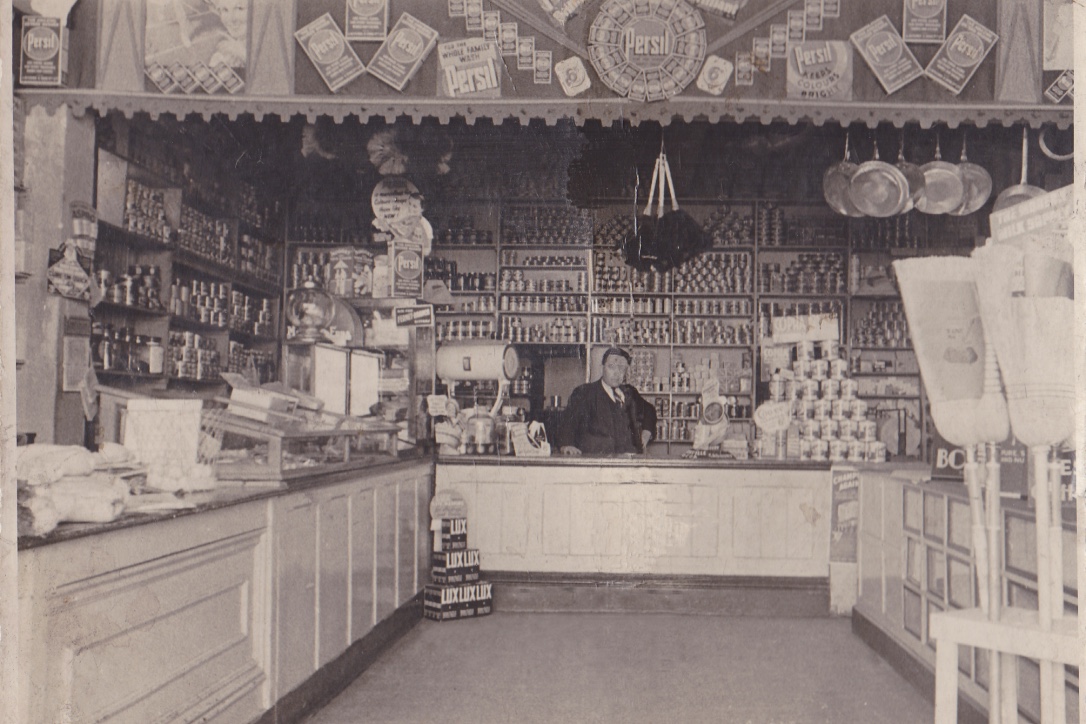In this blog I focus on the story of one of the first men in the extended Veneto market gardener group to arrive in Adelaide. The following information has been gathered through oral history interviews recorded with relatives and documents in the National Archives of Australia and Trove.
It is 96 years since Domenico Rossetto disembarked Port Adelaide on 7th June 1926. Domenico was born in 1896, one of nine children born to a poor family in a small village, Bigolino, in the province of Treviso in the Veneto region.
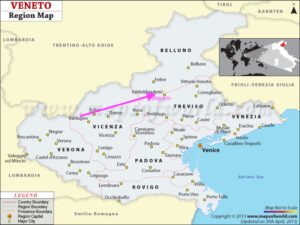
Domenico had served in the First World War as member of the Alpini, a specialised mountain warfare infantry corps in the Italian Army. In 1924 he married Carmela Buffon and their first child, Anna, was born in February 1926 not long before Domenico migrated to Australia.
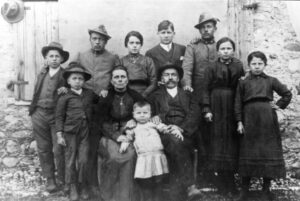
Arrival and work on Yorke Peninsula
Domenico was the first of eight adult children to leave Bigolino hoping for a better way of life in Australia. In his first years, he worked as a labourer at Cape Spencer on Yorke Peninsula in a gypsum mine for the Peninsula Plaster Company which employed 80 men in 1927. For more information about the mine see:
https://www.southaustralianhistory.com.au/inneston.htm
The year following his arrival, Domenico nominated three of his brothers, Gelindo, Adeodato and Angelo, and his brother-in-law, Brunone Rebuli as new migrants. They registered their intended residence and employment with Domenico at Cape Spencer or Inneston as it was known from 1927.
The first generation of the veneti who arrived in the 1920s endured the uncertainties of employment and accommodation and many were isolated during their early years in Australia. Nevertheless, they survived and found work even in remote areas during the Depression. At first, most Veneto market gardeners became wage labourers which was a different model of work from the custom in the Veneto region where they had been primarily part of a family household and economy. The men took various types of short-term employment building rural roads, labouring on farms or working for market gardeners in a relationship familiar to the veneti who had worked for padroni or bosses in the Veneto region.
Making a life in Adelaide
In 1929, Domenico was joined by Carmela and Anna and by 1930 he had become the owner of a grocery shop.

The grocery was in Hindley Street in the western part of the city where many Italians made their home after arrival and it stocked continental food and delivered goods to all suburbs. The deliveries connected Italian migrants in different communities in the suburbs.
Giocondo Caon who was interviewed with his brother, Primo, for an Adelaide City Council oral history project in 1996, recalled that the Rossetto grocery shop was very important in the Italian community:
Italians would come from everywhere to get their Italian product from there … They had things like borlotti beans and they were the first with pasta and so on.
Arrest and internment 1940
Domenico and Carmela with their children, Anna and Modesto, lived in the building where the grocery was located at 266 Hindley Street and became well known in the Italian community of Adelaide.
Challenges for Italian people began when Australia joined the war effort and compounded when Italy declared war against the allies in June 1940. In late 1939, an Italian man in a routine police interview for his naturalisation application, identified Domenico and other Italians who lived in the city as Fascists. A dossier was compiled several months before Italy joined the war in 1940 by the Attorney General’s Department because Domenico was suspected of being a Fascist. Ironically, he and seven other members of his anti-Fascist family had emigrated because of their opposition to Mussolini.
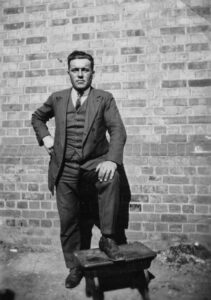
The suspicion of being a Fascist sympathiser was not confirmed and Domenico was released after three months under restrictions which were in place until 1944. His internment served as a warning to others in the Italian community and was remembered clearly by his nephews who were interviewed for the project.
In his interview Johnny Tormena remembered details of his uncle’s experience in his interview. He hesitates before he uses the term, “Fascist sympathisers” to describe people who used to meet in his uncle’s building:
And we found out afterwards that he was interned purely because there were — Fascist sympathisers that used to have meetings and because Uncle had a big house and a big storeroom, they used to ask him, can they use the storeroom to have the meeting … But because of that, they thought that he was a sympathiser which he wasn’t because the reason of him coming to Australia was to get away from Fascism because they were quite against it, the four brothers were against it … I remember the day, the first day that there, in the newspapers that Italy entered the War and the police … went around picking all these people up and interned them down at Keswick [Army barracks],
and Uncle Domenico was one of them.
(Johnny Tormena, OH 872/18, 6 July 2012, 36).
Domenico Rossetto’s legacy
Domenico died at the age of 49 years in 1946.
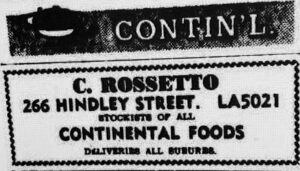
Carmela carried on running the grocery shop in the city with her daughter and son, nieces and nephews, and friends. The Rossetto grocery established by Domenico was a very successful business and well patronised by Italians for many years after the war.
Carmela died in 1970.
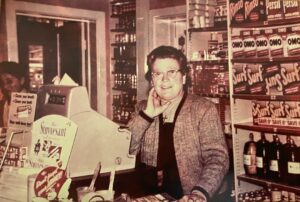
Domenico was a successful migrant in South Australia despite the hardships of beginning his life alone in a rural area at a time of economic difficulties in Australia and his experience of the war years when Italians were ostracised. He earned a reputation in the Italian community for being a skilled and competent businessman.
Madeleine Regan – with thanks to Christine Rebellato nee Mattiazzo
5 June 2022
